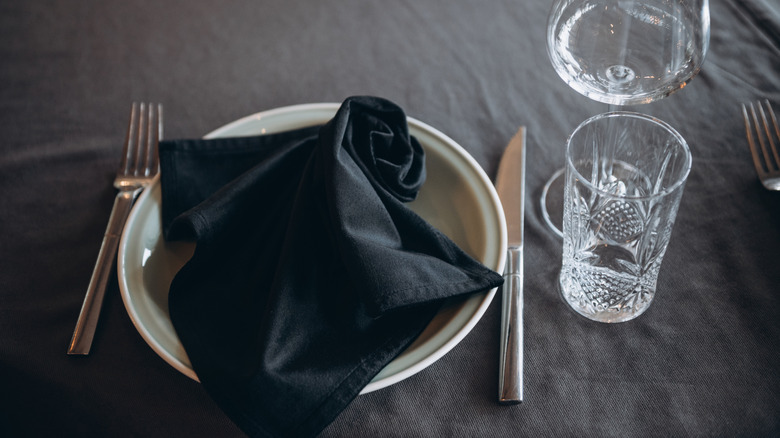Have you ever noticed that some upscale restaurants typically offer black napkins to certain guests? A seemingly small detail — but one that actually reveals a fascinating story about how hospitality and practicality play such an important role in the fine dining industry. While most diners wouldn’t give their napkin color a second thought, for restaurateurs and regular fine dining patrons, the black napkin goes far beyond being a simple piece of fabric.
The tradition of offering a black napkin dates back all the way to 1985, when Danny Meyer — Shake Shack founder and author of “Setting the Table” — opened up Union Square Café in New York City. Meyer faced a dilemma with his napkin options: white cotton napkins left lint on dark clothing, white polyester napkins didn’t lint but felt unpleasant to use, and high-quality, lint-free cotton napkins were too expensive for a new restaurant. Out of options and needing a solution, the black napkin quickly emerged as a practical compromise that both solved the lint problem and didn’t break the bank. Beyond preventing lint, black napkins also offered another practical advantage: they concealed any food stains and makeup smudges. This meant that diners could continue to use theirs throughout the entire meal without feeling embarrassed about any visible stains.
By the late-’90s, the black napkin had become a status symbol across fine dining establishments. At upscale restaurants, staff would quickly identify guests in dark clothing and immediately replace their white napkins with black — ensuring that no diner would leave with lint-speckled attire. This commitment to detail ultimately became a vital element of dining etiquette that people in the know would keep an eye out for when trying to find the best restaurants out there.



